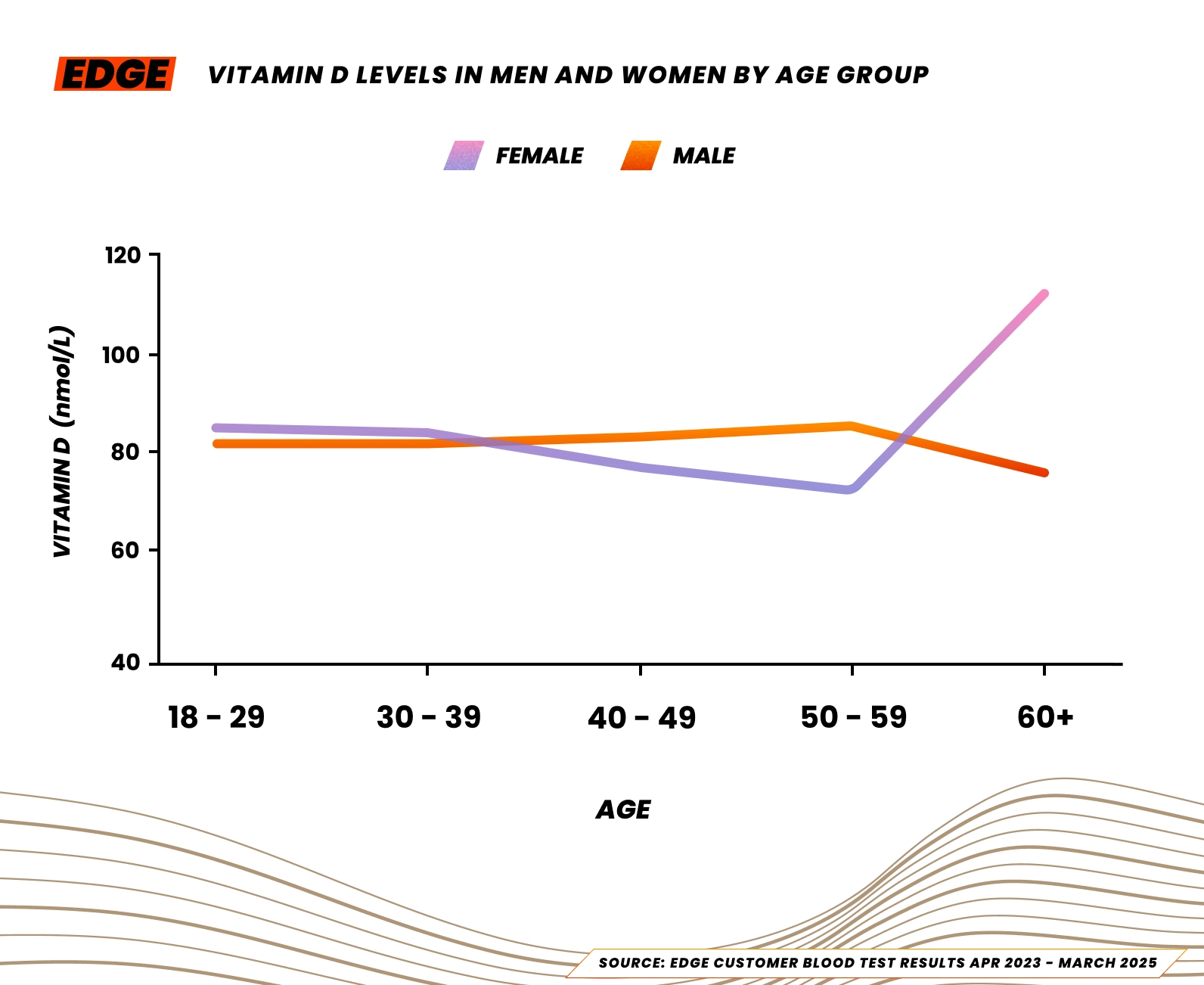What is Vitamin D & Why Is it Important for Athletes?
1 min read
Published on
May 22, 2025
Written by
EDGE
Share this article
What Is Vitamin D?
Vitamin D is a fat-soluble vitamin that plays a crucial role in immune health, muscle function, inflammation control, and bone strength. Many athletes, especially in the UK, are deficient, particularly during winter months.
Low vitamin D affects muscle strength, increases injury risk, and prolongs recovery.

"Although we call Vitamin D a vitamin, its active form is actually a hormone. It's a steroid hormone that is synthesised in the skin after exposure to sunlight and can also be obtained from certain foods.It supports muscle function, immune health, and bone strength – all crucial for athletic performance. Deficiency is common in athletes training indoors or during winter months. I recommend testing twice a year – ideally in spring and autumn – and addressing low levels early to reduce injury risk and support immunity. Pairing with calcium and magnesium can provide further insight into musculoskeletal health."
What are normal vitamin D levels for athletes?
We looked at blood test data from EDGE customers and found that the median vitamin D level for men and women was 82 nmol/L.
Here is a breakdown of vitamin D levels by age:
| Table 1: Vitamin D Levels in Men and Women by Age Group (nmol/L) | ||
| Age Group | Female | Male |
| 18-29 | 85 | 82 |
| 30-39 | 84 | 82 |
| 40-49 | 78 | 83 |
| 50-59 | 73 | 85 |
| 60+ | 111 | 77 |
Source: EDGE customer blood test results Apr 2023 – March 2025.
The labs we used to analyse blood samples state a healthy range for vitamin D is generally between 50-200 nmol/L, but we recommend levels above 75 nmol/L for optimal health and performance.

How Vitamin D Supports Performance
-
Muscle Function & Strength
Vitamin D receptors are found in muscle tissue. Deficiency can lead to weakness and reduced power output.
-
Injury Prevention
Adequate vitamin D supports calcium absorption and bone health, reducing the risk of fractures and stress injuries.
-
Immune Defence
Helps maintain immune resilience during high training loads or competition.
Symptoms of Low Vitamin D
Vitamin D is essential for immune function, muscle strength, and bone health. Low levels can often present as:
-
Fatigue or low mood
-
Frequent illness
-
Bone or joint pain
-
Muscle weakness
Why Test Vitamin D?
Testing Vitamin D helps ensure your levels are optimal for performance, especially during times of limited sun exposure or increased training load. It’s important to test:
-
In winter or if training mostly indoors
-
When experiencing fatigue or low immunity
-
To support recovery and bone integrity
In Summary
-
Vitamin D underpins immunity, strength, and bone health
-
Deficiency is common and often overlooked
-
Testing helps guide supplementation and avoid underperformance
Check Your Vitamin D Levels
Check and monitor your vitamin d levels from home with our sports blood tests.
Get 10% off your first order
Want regular tips on how to make the most of your results? Join our newsletter and we'll give you 10% off your order!
Get the knowledge
Get expert advice to help you improve your results.
Go to our knowledge center


